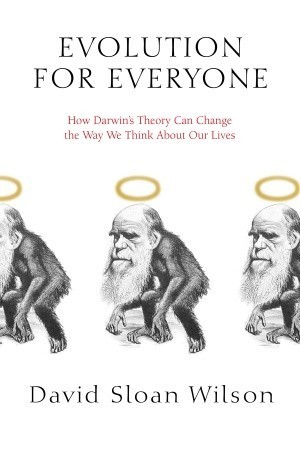
Ever Since Darwin: Reflections in Natural History
Book Description
Prepare for a journey through the captivating world of evolution, where ideas clash and nature reveals its secrets. Stephen Jay Gould uncovers the intricate dance of life, challenging the notions we thought we knew. With vivid narratives and sharp insights, he explores the profound impact of Darwin's legacy on our understanding of existence. Each chapter is a revelation, a spark igniting the imagination about the wonders of natural history. Is the story of life merely a tale of survival, or is there a deeper meaning woven into the fabric of nature?
Quick Book Summary
"Ever Since Darwin: Reflections in Natural History" by Stephen Jay Gould is a collection of eloquent essays that delve into the complexities of evolutionary theory and its profound effects on science and society. Gould uses history, science, and wit to illuminate the far-reaching consequences of Darwin’s ideas, dissecting misconceptions and exploring curious oddities of nature. Through engaging storytelling and accessible explanations, Gould challenges popular dogmas, reveals how evolutionary processes shape both biological diversity and our perceptions, and highlights the ongoing debate within evolutionary biology. This book is not just a celebration of Darwin’s lasting impact but also an invitation to think critically about the natural world and humanity’s place within it.
Summary of Key Ideas
Table of Contents
Challenging Evolutionary Misconceptions
Gould begins by confronting widespread misunderstandings about Darwin’s theory of evolution. He explains that evolution is not a straightforward march toward complexity or superiority, but rather a branching, unpredictable process shaped by chance and natural selection. By debunking teleological views and emphasizing the messiness of evolution, Gould invites readers to abandon simplistic interpretations in favor of deeper, more accurate understanding. He explores common myths, such as the idea of inevitable progress, providing historical context for how such distortions took root.
The Influence of Science on Society and Culture
The book examines the feedback loop between science and society, showing how evolutionary ideas have often been misapplied in social and political contexts. Gould scrutinizes how Darwin’s theories have been twisted to support ideologies like racism and social Darwinism, critiquing the misuse of scientific concepts beyond their proper scope. He notes that scientific understanding is always shaped by the cultural environment, underscoring the necessity of separating empirical knowledge from biased social interpretations.
The Complexity and Contingency of Natural History
Gould delights in recounting the oddities and surprises discovered in the natural world, using these cases to shed light on evolutionary mechanisms. Through vivid examples—like the peculiar adaptations of island animals or extinct creatures—he illustrates that life’s diversity is a product of intricate, often contingent circumstances. Gould emphasizes that many evolutionary paths are determined by accidents of history rather than a predetermined plan, highlighting nature’s unpredictability.
Biological Oddities and Their Significance
Throughout his essays, Gould challenges the notion that humans occupy a privileged or predetermined position in the natural order. He reflects on the arbitrary traits that distinguish Homo sapiens and argues that human qualities are just one branch on the vast evolutionary tree. This perspective fosters humility and a sense of wonder regarding our origins, reminding us that the story of life is one of branching possibilities rather than fixed destinies.
Re-examining Human Uniqueness
In closing, Gould advocates for curiosity, open-mindedness, and critical reasoning as essential tools for exploring natural history. He demonstrates how a rigorous, nuanced understanding of evolution not only reveals the wonders of the living world but also equips us to avoid intellectual pitfalls. By connecting science with broader reflections on meaning and existence, Gould’s essays inspire readers to engage deeply with both the natural and the intellectual landscapes that have emerged ever since Darwin.
Download This Summary
Get a free PDF of this summary instantly — no email required.





